AUBURN — The latest class of welders from Central Maine Community College’s Workforce & Professional Development Center went their separate ways after Friday’s graduation.
Some will look for entry-level welding gigs or use their newly acquired skills to get ahead at their current job.
Cher Parmenter will use her newfound skills to create a bar out of a 1951 Ford pickup hood and other art-oriented projects.

Amber Hodgkins designed and fabricated adaptive pedals to enable a disabled person to ride a trike. Submitted photo
Amber Hodgkins wants to help disabled kids and adults get out and ride a bike, an activity most people take for granted, by using her newfound welding skills to design and build adaptive parts customized for individuals with mobility limitations.
At 37, Hodgkins said she’s wanted to learn how to weld since she was an adolescent.
“My dad is a car mechanic and I’d help him out in the garage, but the torches were the one thing I was not allowed to touch,” she said with a laugh.
“I’m also really into bicycles — building them or upcycling their parts,” she explained. “It just seemed like a way I could advance that. And it seemed really useful and helpful to have on a farm.”
The farm in Augusta is where Hodgkins and her wife raise chickens, ducks and geese — mostly as a hobby.
Her love of bicycles was short-circuited for a while, unexpectedly.
“I lived in Portland, Oregon, loved it, rode my bike to work every day and then I got really sick and nobody could figure out what it was and it just kept getting worse and it was neurological,” she explained.
The diagnosis was advanced Lyme disease. So, Hodgkins moved back to Maine and spent the next five years in a wheelchair. Recently she found out she has a genetic disorder that likely played a role in the severity of the onset of Lyme disease. She’s recovered enough that most days she only has to use a walker or a crutch.
For the soft-spoken Augusta native, Hodgkins said the wheelchair is part of her past, but she said it appears it will also be a part of her future. For now, her goal is to hone her welding skills enough and maybe start a small business.
WORKING WITH ADAPTIVE EQUIPMENT
“I know the basics, I’ve got a welder, I’ll be practicing all the time,” she said. “It takes a while to build up equipment, figure designs out, but I wouldn’t mind helping a few people here and there — finish one project, start another.”

Amber Hodgkins sets up pieces of metal to weld Monday at Central Maine Community College in Auburn. Russ Dillingham/Sun Journal
Welding equipment is expensive, so Hodgkins said it will be a slow go acquiring what she needs. She’s already working on a set of adaptive pedals for a disabled adult who has a special bike with pedals they can’t use.
“It’s insane, because nothing adaptive is covered by any insurance, so you always have to pay out of pocket,” Hodgkins said. “So the benefits of getting out, getting fresh air, the endorphins, exercise these are things that doctors and the insurance companies want us to do but they won’t cover.”
Adaptive bikes are very expensive, starting at $2,000 to $3,000 for a basic model and can run to over $5,000. Adaptive parts for bikes are available online but are usually too generic and expensive for most recreational riders.
Maine Adaptive in Bethel said it’s the largest year-round recreation program in Maine for adults and children with disabilities. Lizz Peacock, the organization’s managing director, said there are only a few people who do custom work and sources they use are in New Hampshire.

Amber Hodgkins uses a tungsten inert gas welder Monday to fuse pieces of metal to make a soccer ball at Central Maine Community College in Auburn. Russ Dillingham/Sun Journal
“There’s a lot of kids with disabilities and bikes were just never something for them,” Hodgkins explained. “But if you can figure out how to keep their hands where they need to be, keep their feet where they need to be, or how to get them securely on the bike — that opens a world of bikes to them.”
Hodgkins said crafting some adaptive pedals is her final project and she got some good ideas during the course, which covered the basics of MIG, or metal inert gas, and TIG, tungsten inert gas welding.
“I come from a really long line of stubborn, creative women,” Hodgkins proudly declared. “I can’t draw, I can’t paint, I can’t knit or sew — they can all do amazing things. But this is something I can do.”
As for whether she’ll tell her father not to touch her new torch, Hodgkins laughed and said, “I have not told my dad — I should!”
Hodgkins plans to set up a social media page or website, but for now can be reached via upcycledadaptive@gmail.com.
Send questions/comments to the editors.


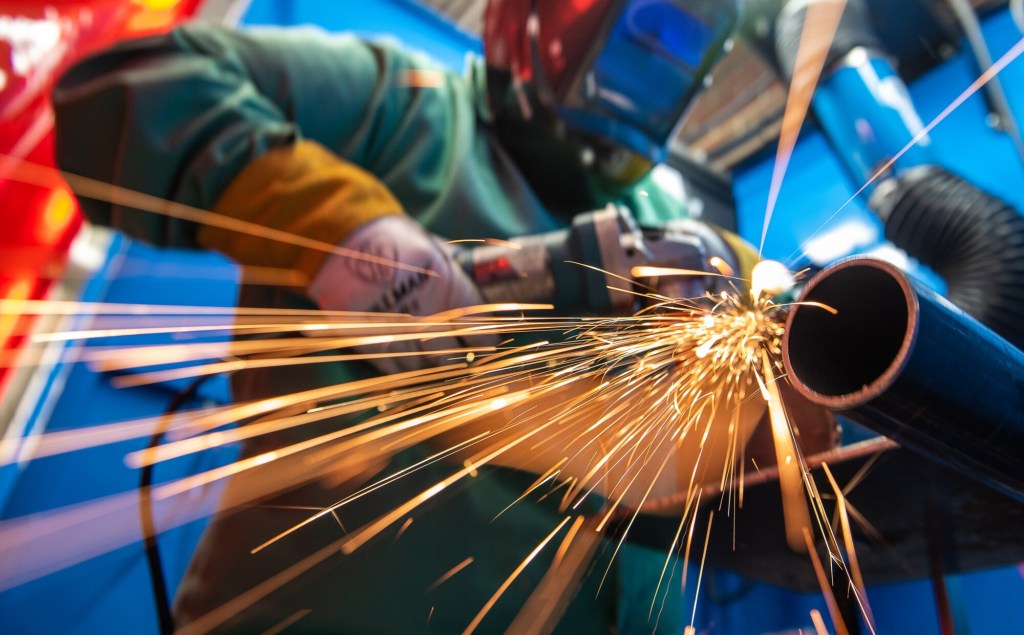
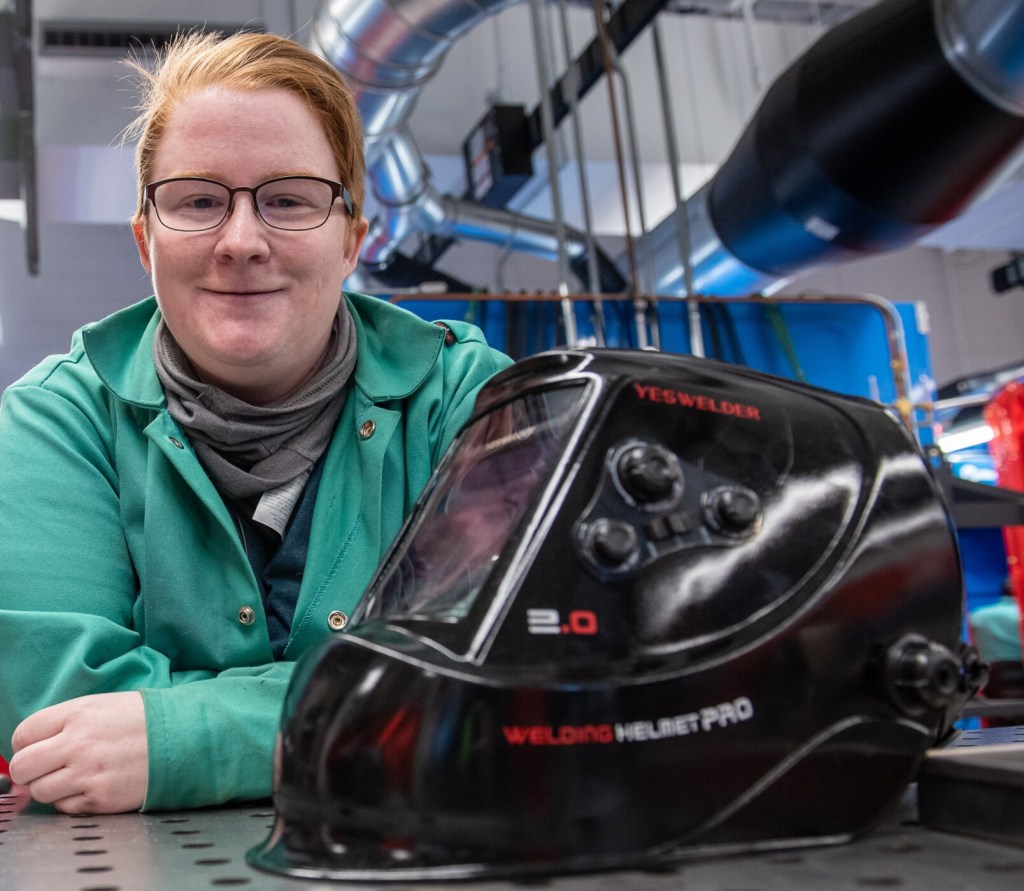
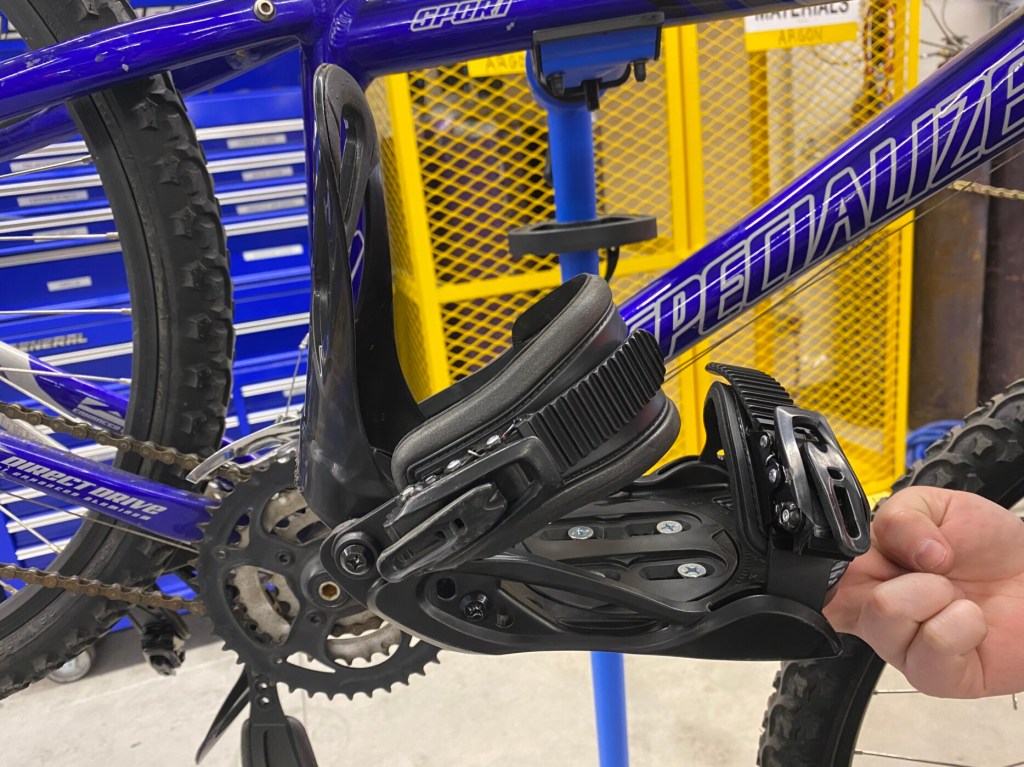
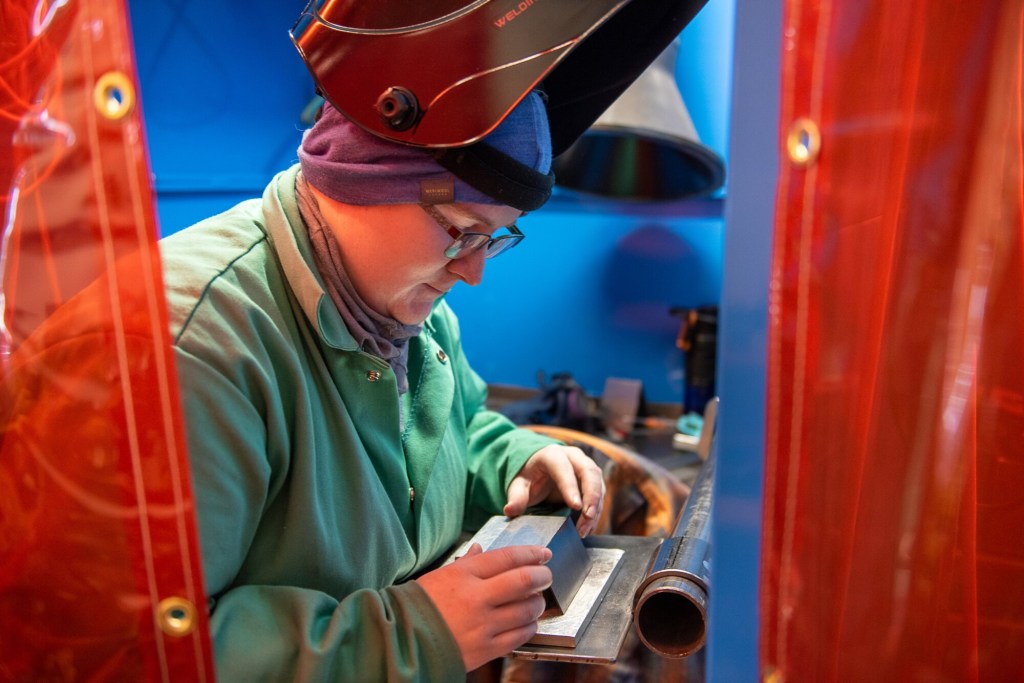
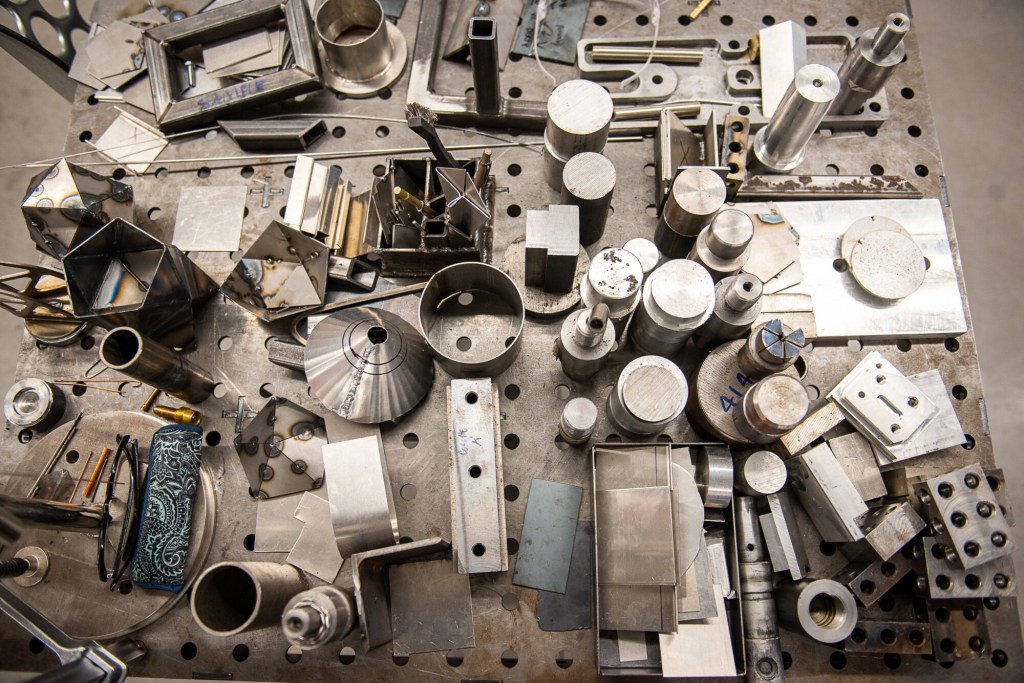
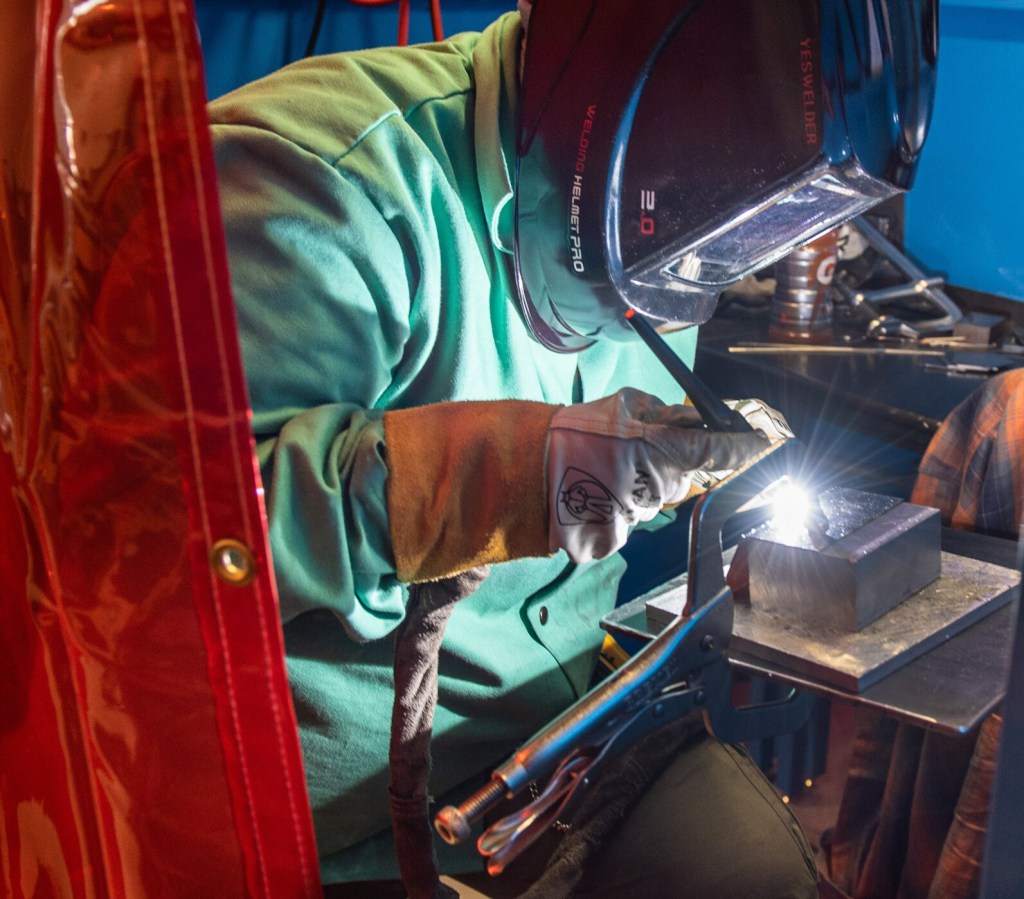
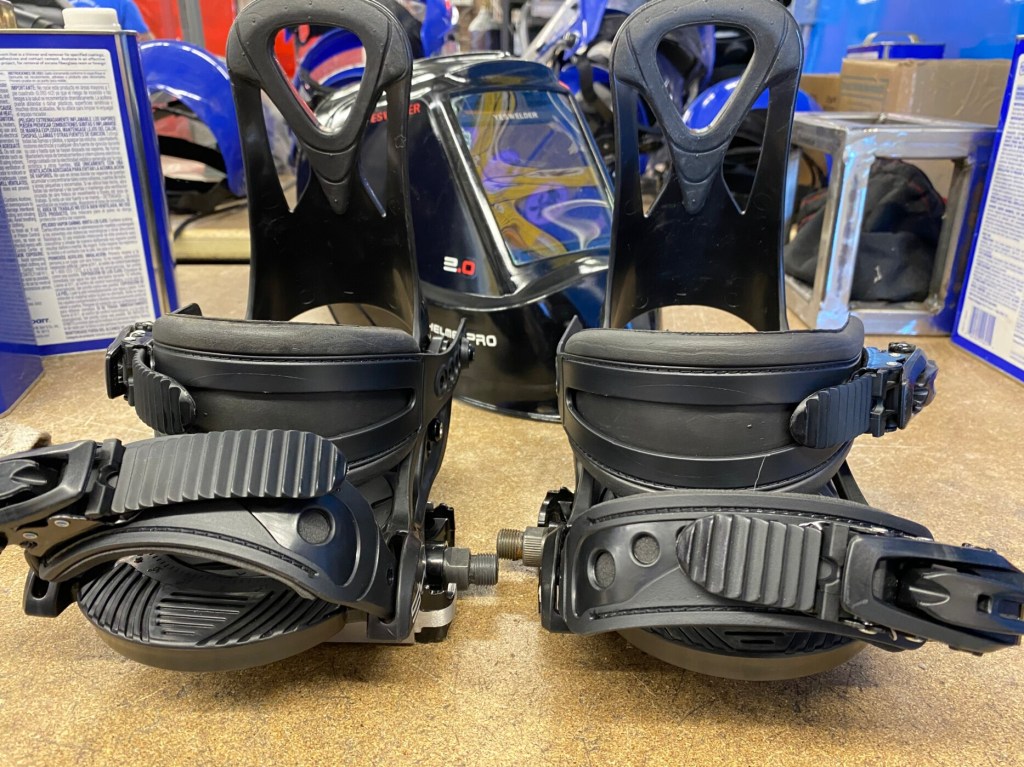
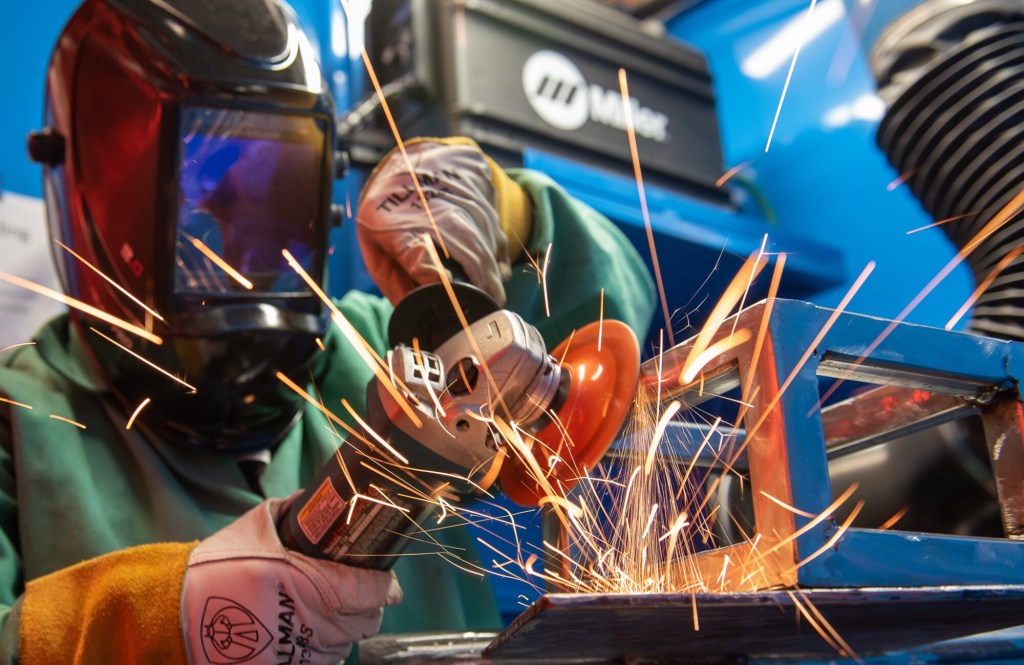
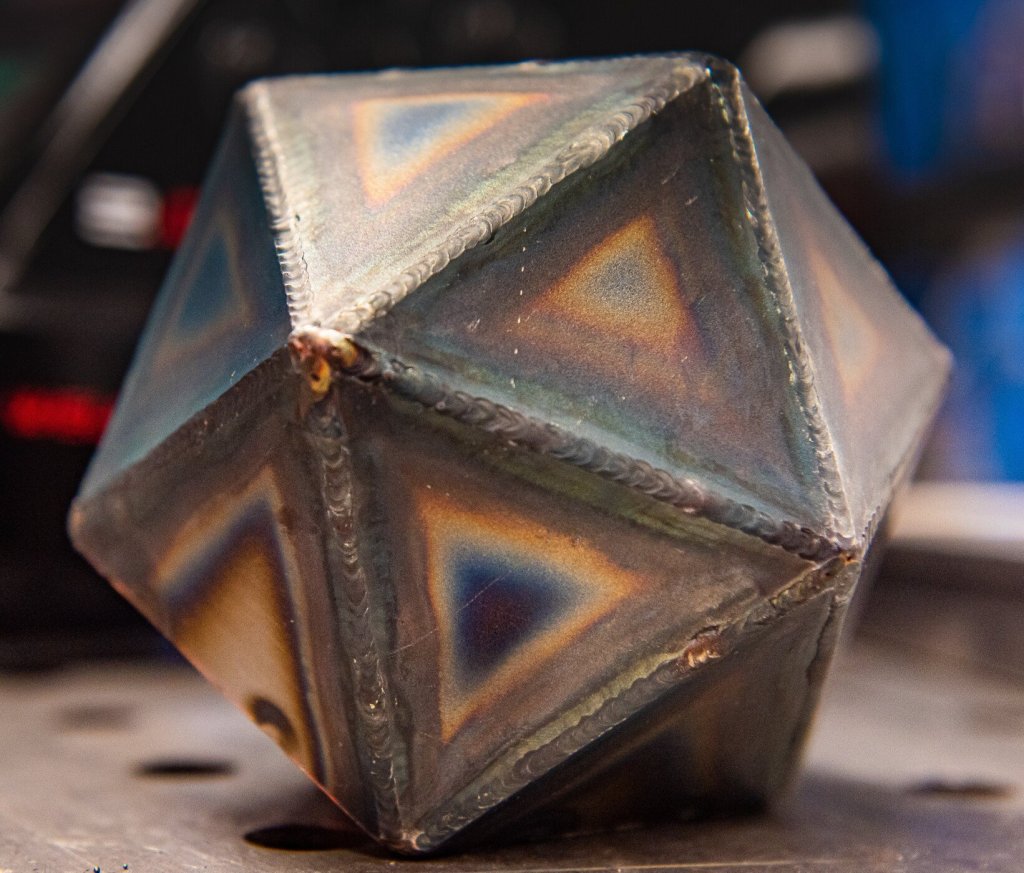
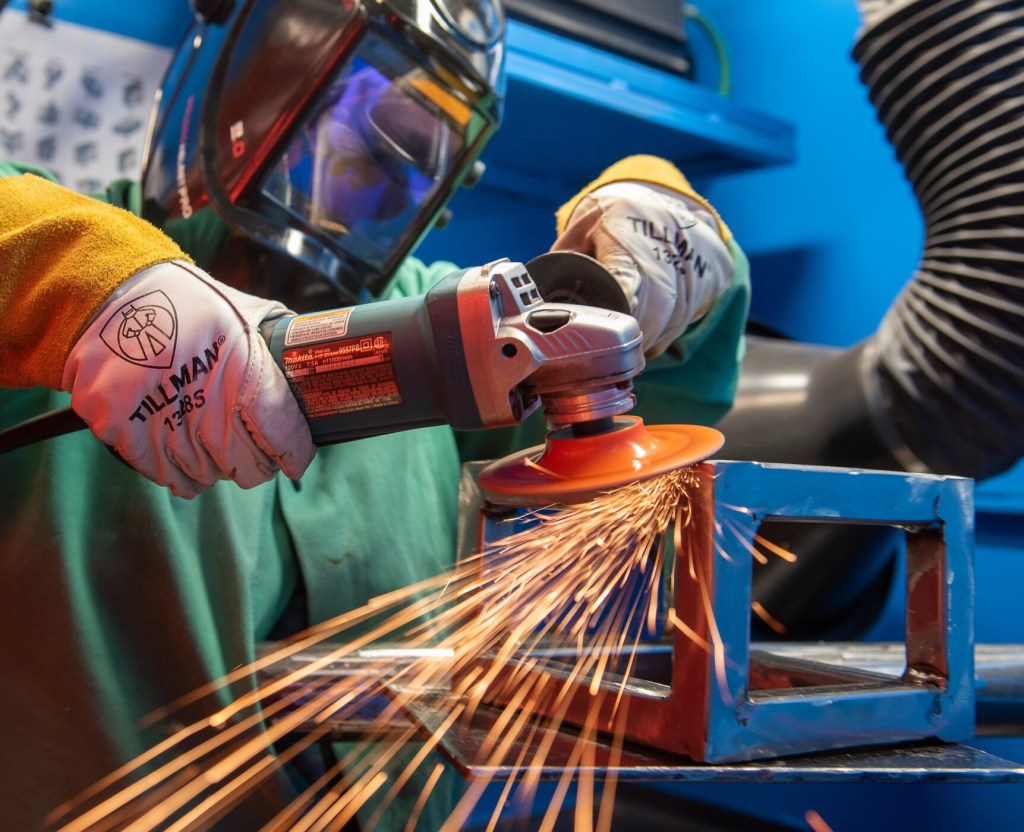

Comments are no longer available on this story